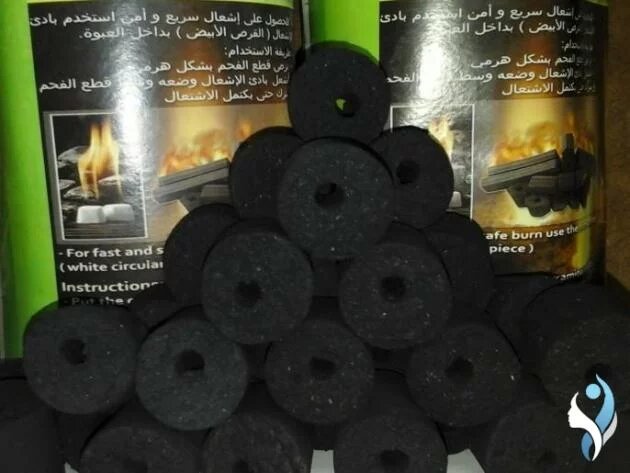
11 May 2016
Gaza (NAWA) - Tamam Muhsin
As engineer Hasan Zayed was wandering between farms stretching the northern Gaza Strip, the accumulated amounts of agricultural waste immobilized him and led him to wonder “why are these remnants wasted in trash? And could these huge quantities be benefited in producing energy? And how?” He finally found the answers to these questions in his project “Biochar Production”.
Ingenious Idea
Engineer Zayed, 43, talks about the project’s idea: “The idea first came to me 4 years ago, when I used to see the large amounts of agricultural waste in Beit Lahia north of the Strip, which were wasted posing huge burden on farmers while not being of any benefit. So I collected some samples, dried them, and then pyrolysised (charred) them in isolation of air. It turned out that 70% of the matter had excellent coal.
Zayed points out that biochar is being used in many countries, especially East Asian Countries like Japan, in fertilizing the soil, fodder production, and combating agricultural pests.
Engineer Zayed illustrates the stages of coal production as follows: “first we collect agricultural waste and tree remnants and compress it after drying and cutting. Then we heat it in isolation of air until it reaches high temperatures of 500o Celsius in what is known as destructive distillation. This process produces dense fumes which are collected and transformed to a dark brown liquid that contains water vapor and various chemical elements”.
He continues: “then comes the phase of separating the components to acquire what is known as 'wood vinegar', which is currently used in Japan and East Asia and Europe as a soil fertilizer and insecticide. It is added to animal fodder for better productivity”.
He adds: “as for the wastes that were heated in isolation of air in a special oven, they turn into carbon, which is the main component in the manufacture of compressed coal and bio-coal, both are added to the soil for fertility improvement”.
According to Zayed, this process results in three primary outputs which are: “bio-coal” that is universally used to enrich the soil; “wood vinegar”, one of the coal distillation fluids and is used in agriculture and fodder; and “compressed coal”, now used in heating and barbecuing and is characterized as highly flammable and long lasting. In addition to the three primary products, there are two byproducts: coal powder, and tar. He also seeks to produce activated charcoal which is considered one of the most important universal products used in the industrial world, as he says.
Answering the question of "how can the Gaza Strip benefit from it" he says: “the idea helps exhausted Gaza, exhausted not because of the siege but of carcinogenic and deadly pesticides, and the carelessness in using these pesticides excessively.
Difficulties
Despite the availability of the raw material used in local production, and engineer Zayed’s keenness on manufacturing the production machines himself, some obstacles still face the process of bio-coal production in the Strip, most notably the problem of electricity. Zayed explains: “we need 3phase electricity in order to operate the raw material grinder, and this is highly costly, in addition to the absence of funding for ongoing developmental activities of the project".
But Zayed did not give up, and sought to join one of the incubators in order to fund his project. He also founded his own factory to start supplying the local market with the product, but the factory was bombed during the latest aggression of the Gaza Strip in July 2014, thus hindering marketing the coal on time.
"Seed" Project
Engineer Zayed is trying to rehabilitate his factory, benefiting from a financial grant from the “Seed Project” which supports and empowers entrepreneurial and small startups. Hasan Zayed’s project was selected from among 1000 applications at the “Seed Project”. He was able to defend his idea’s ability to succeed in front of the competent evaluation committee.
Esra’ Musa, who is the Business Development Officer at the “Seed Project” clarifies that the project of “manufacturing compressed bio-coal” has been chosen by the committee in charge of assessing the projects, as it caught the committee’s attention since the first stage because it wraps a need in the Strip, and is based on the concept of renewable energy, sustainability, and the disposal of waste to produce energy”.
She says: “during the production period, which was before the 2014 aggression on the Gaza Strip, there was a demand for his product which proved its presence in the market. During our assessment process, the project was tested again, and proved its ability to succeed and prosper in the market”.
Originally published in Arabic on NAWA.PS